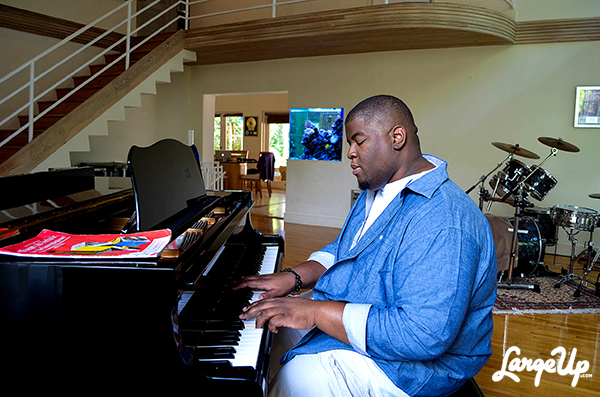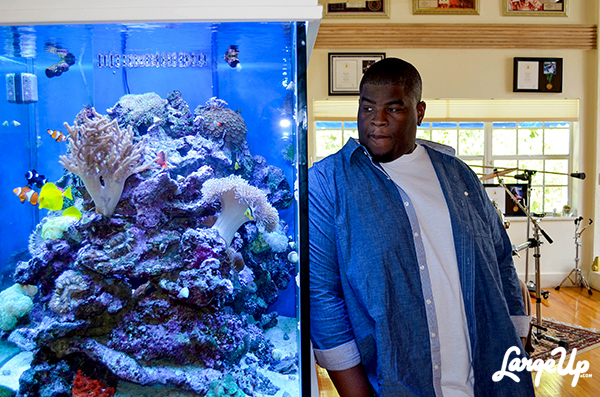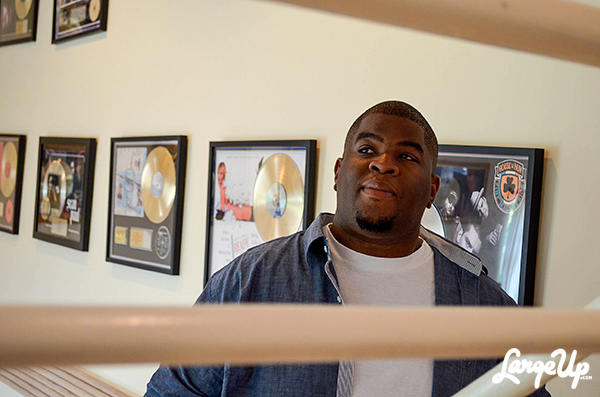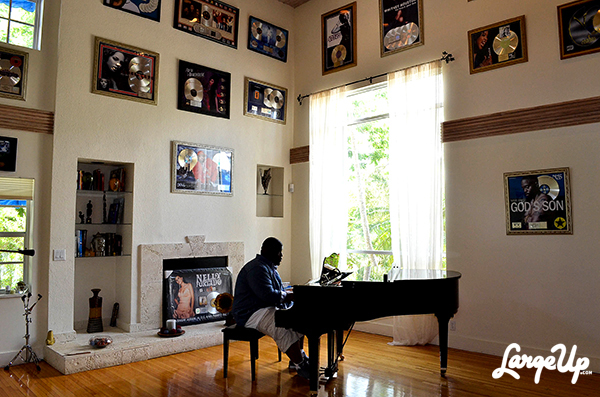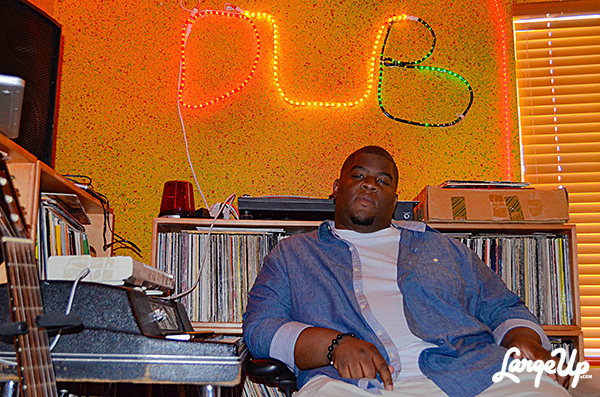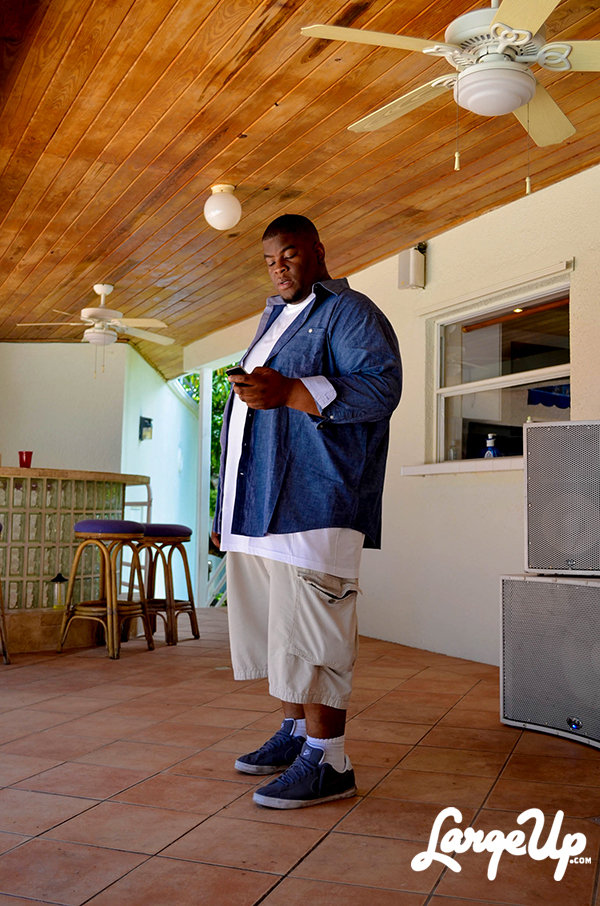LU: Are there other records on ice like the “Our Day Will Come “cover that has that feel?
SR: We had versions of other songs and we would flip reggae versions. There’s a couple but none of them are finished. There’s not a reggae album coming out. I could make one but it’s not like it would be recorded to make a reggae album. That wasn’t done. “Our Day Will Come” wasn’t recorded as a reggae record, originally. I just thought about what she was singing. We actually did two versions, one with the reggae. And when her family heard that they were like, “That sounds like Amy.” They just felt her spirit was in the room when they listened to that. That’s why that was the single for that album, and it starts the album. Because they just felt, wow, this feels like her.
What we always did was on her first album, I introduced her to “Moody’s Mood for Love,” which was a jazz record I knew because Frankie Crocker on WBLS would close every show with it. She learned it in a couple days and I was like you know what, let’s do a reggae version just to have a different swing of it. So that became the reggae version on that album. Then “Just Friends,” was really a jazz type song when we originally did and she said let’s make this the reggae song, like we did with the other one. So I flipped the arrangement, and we had that on the second album. And of course she had other songs that she was starting to record where we would flip reggae versions. We just knew we could do that with songs, like turn it on it’s head, let’s just do it that way with the same music. With the musicians we were working with, it was just easy. I’d change the bassline and flip the drums around and next thing you know it starts feeling like the reggae version. And that’s just something that she liked. She was into that type of music. She was into West Indian culture in general. All of her security were Jamaicans. Most of the people she had around her had some type of core West Indian element to it.
She was comfortable with it. When we were in St. Lucia she was writing but relaxing, not being in the cold anymore with Paparazzi chasing her around—they had to stay far in the bushes out there—and figure out what was next.
LU: I remember seeing you say on Twitter about a year ago that you’ve finally made a song that matched “Ghetto Red Hot.” I have to presume you were referring to “The Don.”
SR: I took a picture of “Ghetto Red Hot” and Nas’ “Made You Look” next to each other. The two records are right there. I was just saying that I was able, for me, “Ghetto Red Hot” was 20 years ago and “Made You Look” was 10 years ago. Sometimes people say, “what was your first hit,” and I’m like I don’t know. Because before “Here Comes the Hotstepper,” which was cool for what it was, I think “Ghetto Red Hot” was a hit. I think.
LU: It’s a classic, but was it a hit?
SR: There’s hits in different lanes. Bush Babies’ “Remember We” was on the radio all the time, but in this area at that time. So I’ve been able to hit different pin points. That whole situation with the classics and going into sections that was all planned, this goes with that. Even on “A Queens Story” I put that “You all know how the story GO!” [Run-DMC sample]. It was too many nights in the booth with Flex and he’s catching “Peter Piper” longer than the people dancing wanted him to, and he’s catching that line 100 times in the club. I still think like a DJ. I can create any record from scratch, with an orchestra and a drum machine, but I’m thinking like a DJ. What if everything was shut down right now, what can I make right now that will shut down the whole place, and make everybody be like yes. If I arrive at the club and everybody’s played all night and they think they’ve played every song, what can I draw from my hat that would make the place be like “yes, I wanted to hear that.” That’s how I think when I’m making music. Right now I’m already thinking into next summer, what’s gonna actually sting.

